Disclaimer: This post has been sponsored by Purina Animal Nutrition, as such I received free product from Purina to share my opinion with my readers. However, my opinions are based on my individual and unique experience. Based on my experience in 2016 I believe this line of feed has been amazing for my flock and I encourage you to try it too! There are also links to products I recommend from companies I have a referral relationship with. I will be compensated if you make a purchase after clicking on my links.
I absolutely love raising poultry and even though I live on a 2 ½ acre farm.
I consider my poultry to be pets instead of just livestock.
Chickens make great pets - plus you get the added bonus of eggs, meat - if you choose to butcher your chickens and natural pest control.
Of course, like any pet, chickens do require care - regular feeding, plenty of fresh water, room to roam, a safe, clean place to roost at night and they absolutely love attention.
I choose to feed my flock Purina® Organic Poultry Feed because over the course of the last month I have seen the results this feed brings.
Buying baby chicks - or even adult chickens that are already laying - is often tempting but before you do, you need to have a plan in place.
Here are 6 things you need to know before getting backyard chickens.
Get A Chicken Coop - Lock It At Night
Before you purchase baby chicks - or even older chickens - you need a chicken coop.
You can choose to build your own chicken coop or buy one that is pre-made and only requires assembly however the first step is to choose the location where your chicken coop is going to be placed.
This is important because you want it to be convenient to get to for daily chores and collecting eggs.
When choosing a chicken coop there are some things to consider:
- Is it easy to clean?
- Does it have good ventilation?
- Is there room for indoor nests for egg laying?
- Is there enough room inside for your chickens to roam?
- Is it easy to get water to year-round?
- Does the chicken coop have adequate drainage?
I highly recommend choosing a chicken coop that has a door you can put a padlock on at night.
Many predators can figure out how to open a chicken coop door so using a padlock on the door at night does help to protect your chickens.
Another recommendation that I have is to put some heavy gauge metal grating or fencing on the windows.
This allows the air to get in but keeps some predators out.
Also consider the floor of your chicken coop.
Some predators dig so a solid floor is best.
Make A Predator Protection Plan
There are a number of predators that prey on chickens - and not just at night - some will attack during the day.
These include dogs and fox among others. One of the first things you need to do is figure out what preys on chickens in the area you live in, then figure out the best way to keep them at bay.
One way to detour them during the day is to keep your chickens inside a chicken run - or fenced area with a top on it.
Now while it is true a determined predator might find a way in no matter what you do, a fence is going to detour some because let's face it, the chickens up the road might be easier prey.
I use motion detector lights around the outside of my chicken coop and hang wind chimes nearby.
Over the years I have lost some chickens to predators but for the most part the suggestions I am making to you have worked to keep the majority of the predators away.
Anytime you do lose a chicken to a predator it is important to figure out what that predator was by looking at any paw prints you can find and by figuring out how they managed to get to your chickens.
Once you know this, use this information to make a better predator protection plan.
Keep The Coop and Chicken Run Clean - but expect dirt, mud and smells
For the most part keeping your chicken coop and chicken run clean is going to prevent most of the smells - but sometimes, especially during the early spring coop cleaning you are going to have a smell.
Chickens love dirt baths and of course, if it rains, mud is pretty inevitable.
There are things you can do to lessen these problems however.
First of all inspect your chicken coop - and the chicken run every time you go out to check on your chickens.
Take the time to immediately remove manure, old feed and wet litter.
This should be done at least once a day.
I keep a 5-gallon bucket with two kitty litter scoops in my chicken coop which makes dealing with these messes a lot easier then digging out the pitchfork.
Doing this one thing daily is really going to make a difference in how your chicken coop looks and smells.
During the summer I clean my chicken coop at least once a week - top to bottom.
I remove all the organic matter from every surface - the floors, the nest boxes and all the places they roost including the top of the nest boxes.
Sometimes I use soap and water to scrub areas that have chicken manure built up that won't scrap off.
Be careful of what cleaning chemicals you use because some do not keep certain organisms and some may release fumes that are harmful to birds according to Purina Animal Nutrition.
Once you are done cleaning, leave your chicken coop open and allow all the surfaces to completely dry before you put any new bedding in place.
I often use a fan positioned in the window of my chicken coop during the summer to help move air around inside it.
Remember that many parasites, viruses and bacteria flourish in damp conditions not to mention that damp litter loses some of its insulating ability.
Know That Researching Chicken Ailments and Learning To Care For Them Is Part Of The Deal
Most vets I have dealt with do not treat chicken ailments.
Over the years I have learned to keep an eye on my chickens, learn their behavior and immediately take note, then do some research when I notice something is just not right.
With the exception of egg eating and cannibalism chickens really do not have a lot of behavioral issues - and both of these can be easily corrected by figuring out the cause of the problem and correcting it.
A good diet goes a long way in preventing both of these issues.
This is why I chose to feed my chickens Purina® Organic Poultry Feed. Purina is a name I trust because they have been nourishing flocks across the country for more than 80 years so when I heard about their new line of organic feed I wanted to try it out. In fact the first line of feed Purina ever sold was for poultry - to me that means a lot.
The new Purina® Organic Poultry Feed is a complete line of certified USDA Organic chicken feeds that are made with all the ingredients you want and none that you don't.
Know That You Will Lose Chickens
No matter how well you care for your chickens, you will lose some.
I feel this is the hardest part of raising chickens.
Chickens have personalities - and let's face it, most backyard chicken owners name their chickens.
I know I do.
A chicken can live over 20 years if they are well cared for - although I have not personally had any live that long however I had a friend whose roosters lived to be about 8 years old.
There are a number of things you can do to help prevent the lose of your beloved chickens such as making sure they get the proper nutrition, lots of fresh water and a safe, secure place to live.
I feed my flock Purina® Organic Poultry Feed twice a day to make sure they get the proper nutrition they need.
Do Not Expect Eggs On A Regular Basis
Chickens do not lay eggs on a daily basis for the most part. Some hens might produce eggs on a daily basis but typically you do not so don't expect it.
Egg production in hens starts at about 18 to 20 weeks of age and peaks when they are 30 weeks old.
My hens have never laid during the winter - but I do not keep a light on or heat my chicken coop.
Instead I let them have this time off to molt.
When a hen molts they do not lay eggs.
This is their resting period.
They often lose their feathers during this time, but never fear they do regrow them once they are done molting.
For the past month I have been feeding my four hens and my three turkeys the Purina® Organic Layer Crumbles and the Purina® Organic Scratch Grains.
It has been an unusual spring with the temperatures fluctuating a lot. Last week my turkey finally laid her first egg of the season.
This says to me that the new feed has everything in it she needs to be able to produce eggs.
She has not laid another egg yet, but she will - and this year I do not have to feed her lots of supplements to get her to lay.
I know this because the only feed she has had this past month is the Purina.
Last year I gave her all kinds of supplements to help her lay and still only got one egg all season long even though she was old enough to lay eggs last spring.
Where To Find Purina® Organic Poultry Feed
I really love feeding my poultry Purina® Organic Poultry Feed and I know you will too especially if raising happy, healthy backyard chickens is as important to you as it is to me!
I encourage you to Visit your Purina® retailer and buy today!
The sooner you get started feeding your flock Purina® Organic Poultry Feed the sooner you are going to get those fresh, organic eggs - or fresh, organic meat if you raise meat birds.
Be sure to visit PurinaOrganicFeed.com, Like Purina Poultry on Facebook, Follow Purina Poultry on Pinterest and Subscribe to PurinaMillsTV on YouTube.
It's time to share the good news that Purina now has an entire line of Organic Poultry Feed!
This post has been sponsored by Purina Animal Nutrition, as such I received free product from Purina to share my opinion with my readers.
However, my opinions are based on my individual and unique experience.
Based on my experience I believe this line of feed has been amazing for my flock and I encourage you to try it too!
Do you have questions?
I invite you to leave your comments below.
Chicken Care Tips
5 Tips For Keeping Chickens At Home
Keeping chickens at home is very popular. It is a good idea to learn how to start raising chickens before you own baby chicks or full grown chickens.
Getting Started With Chickens � Experimental Homesteader
One of the easiest animals to start raising on the homestead is chickens. In this episode we will explore the advantages of raising chickens, problems that can arise from raising chickens and how to keep your chickens healthy.
Keeping Roosters - Should You?


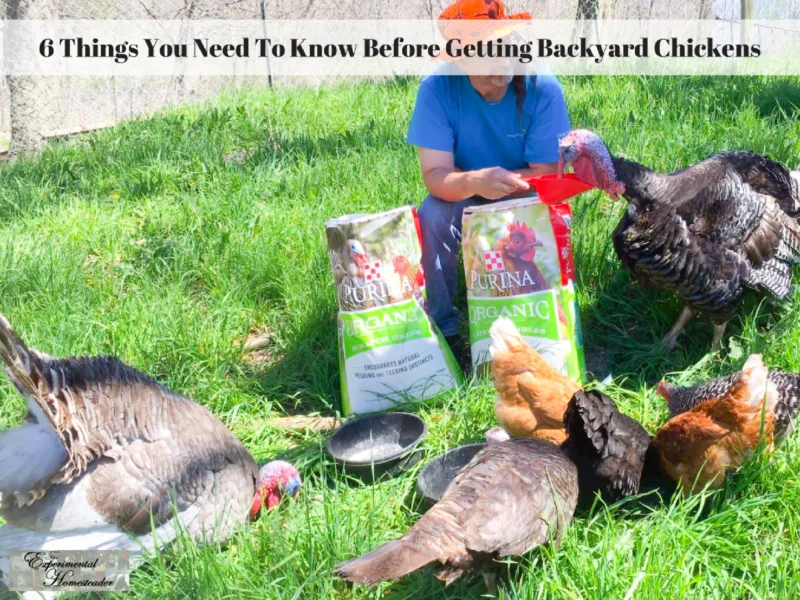

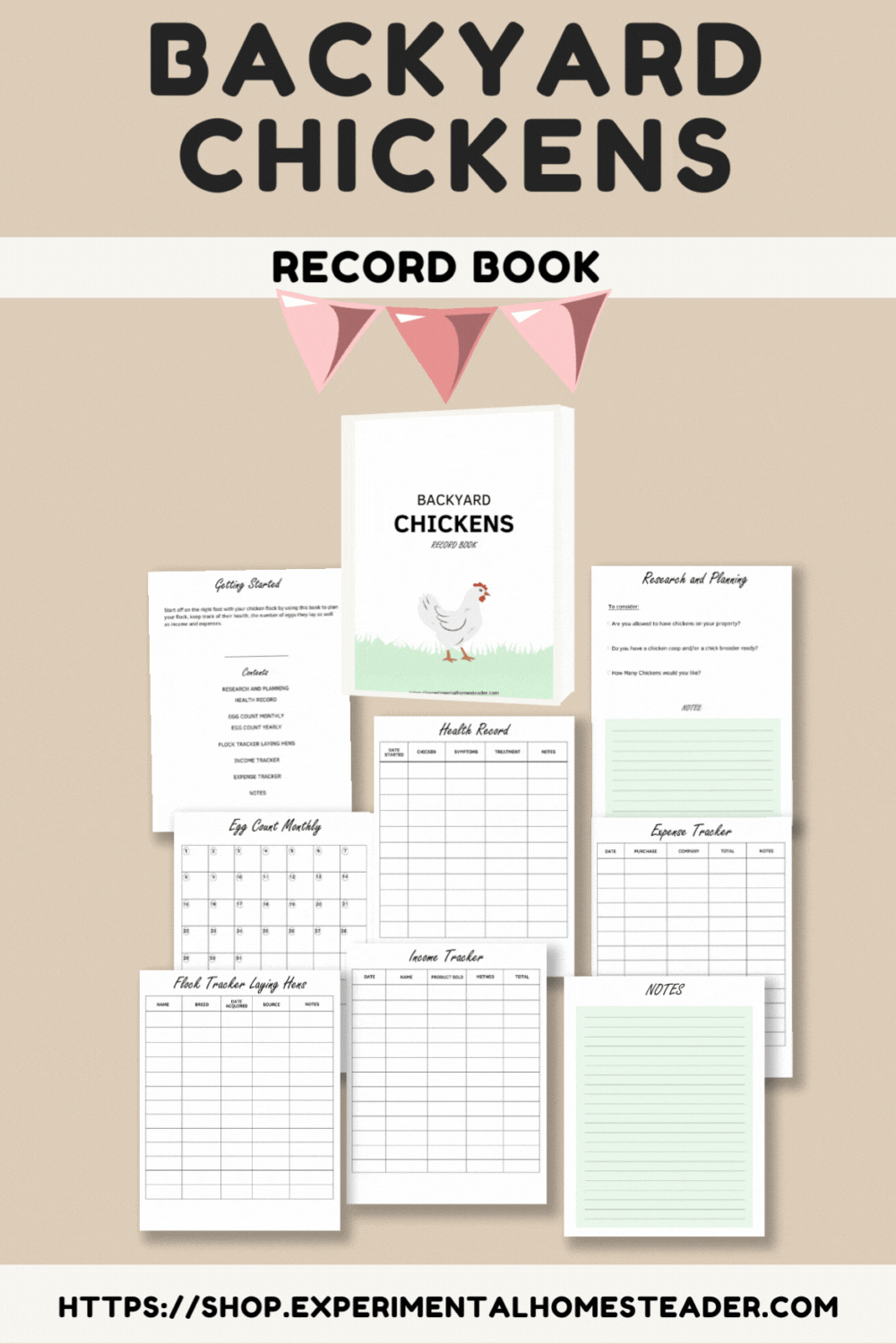
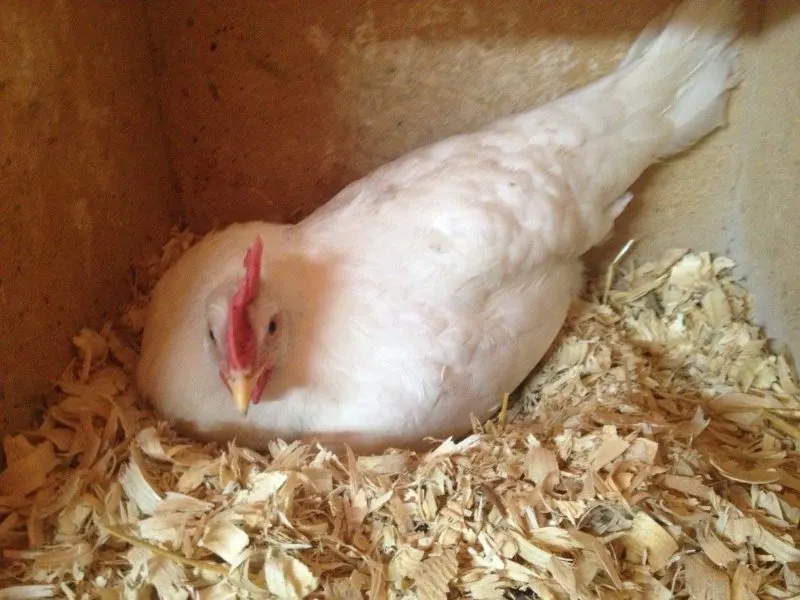
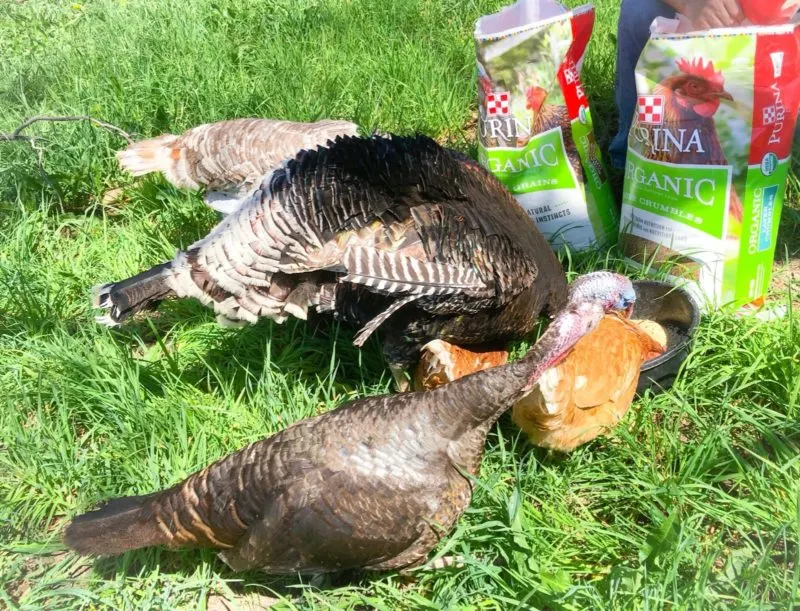
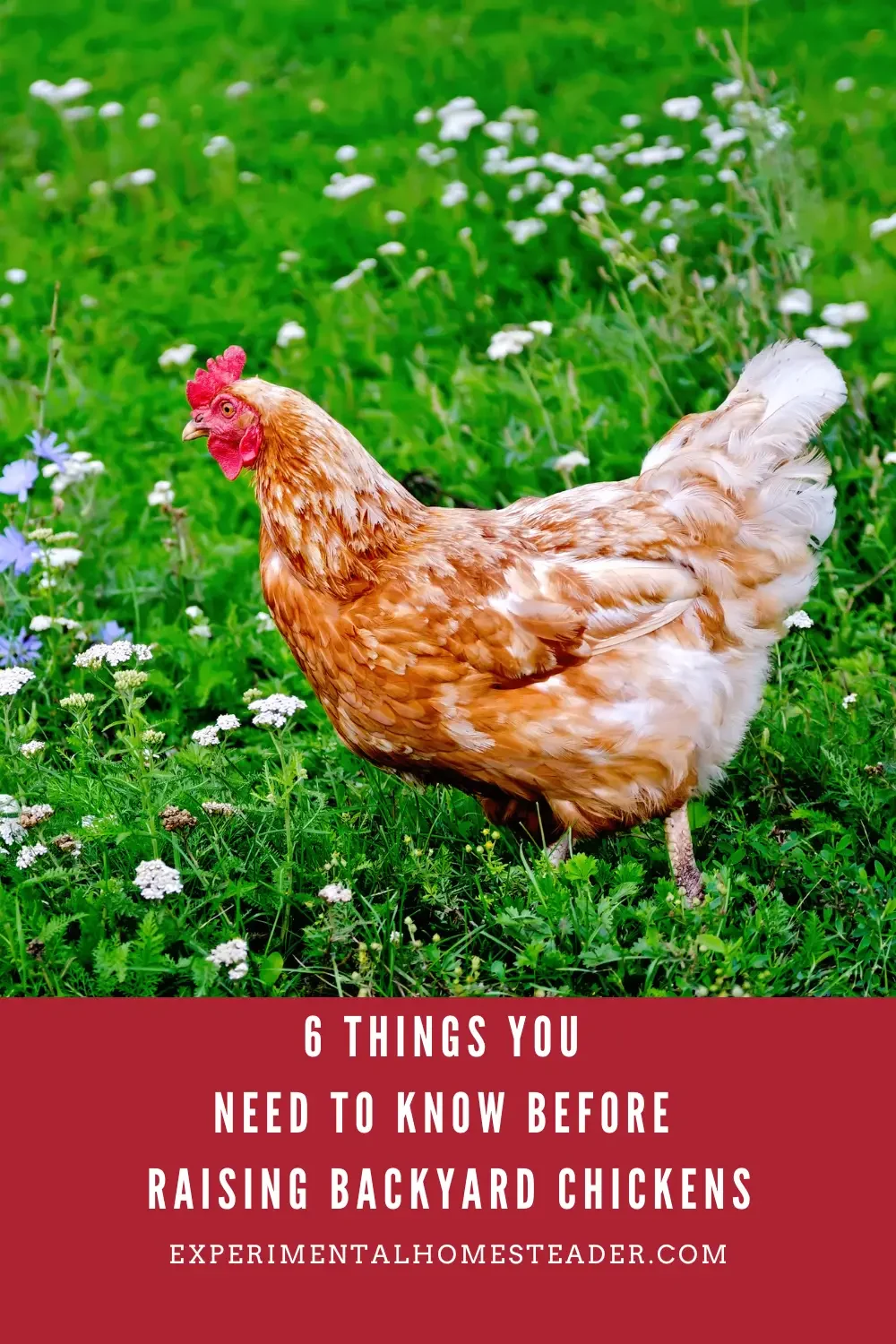
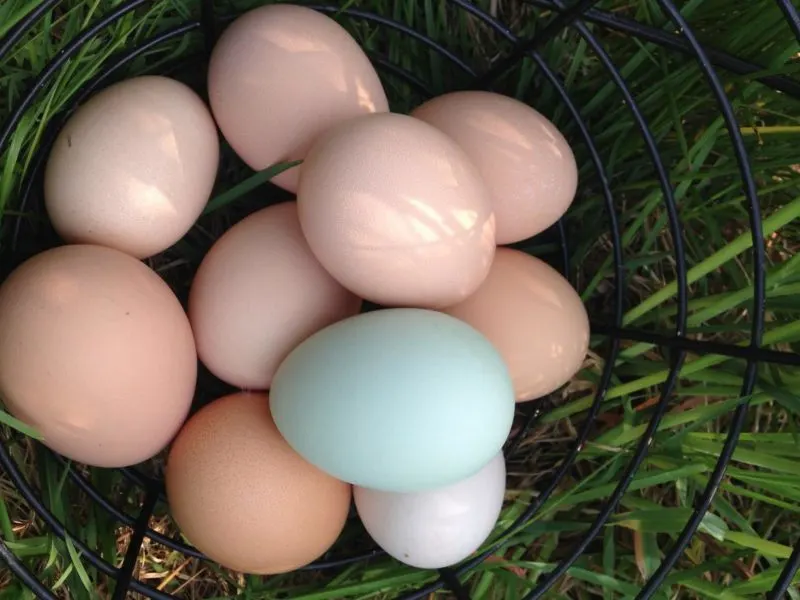
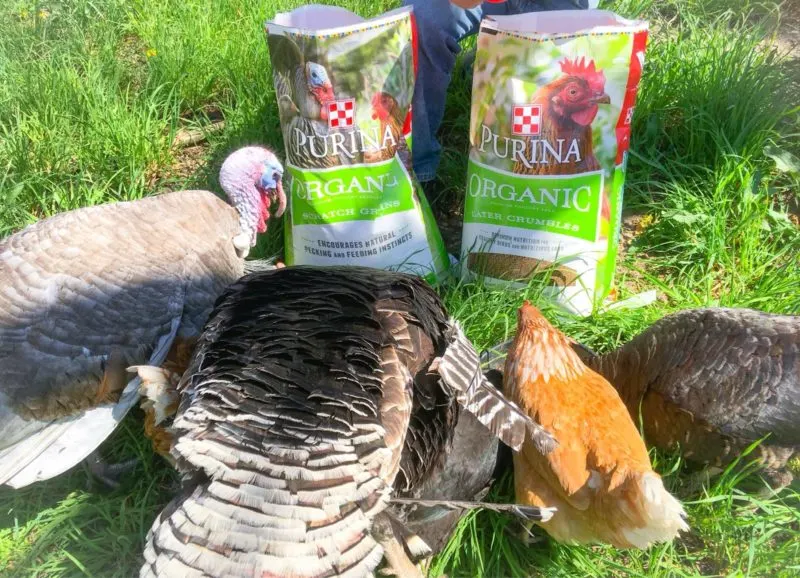
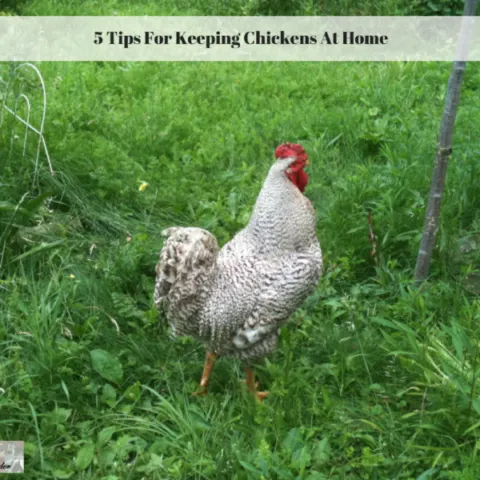


Harsha
Thursday 7th of January 2021
Chickens are so amazing. They are a great homestead animal and easy to care for. I can watch my flock of hens for hours and not get tired.